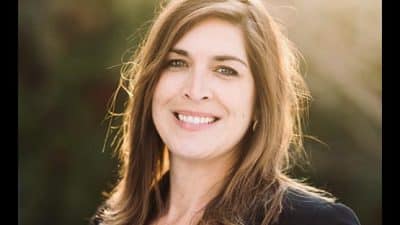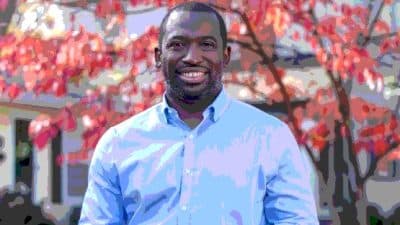
Pay attention, and you can still hear the crowd singing “The Good Ol’ Song,” to the tune of “Auld Lang Syne,” after a touchdown at a University of Virginia football game. “We Come from Old Virginia, Where All is Bright and Gay,” the song goes, and then many in the crowd fill in, “Not Gay!” Just to make it clear, you know.
OK, so there are a lot of adults doing that. No harm, though, no foul, right?
The Greater Augusta community got a jolt in the other direction this past week with the news about the resolution to the 1967 murders of two employees at the High’s Ice Cream shop in Staunton that police say was committed by a teen who had been teased by her two teen coworkers over her sexual orientation. Apparently words can do damage, and that damage can be collateral.
“When we began this program, six years ago now, we found that middle-school teachers were really engaged in the program, and then we began hearing from a lot of elementary schools as well, saying, This is something that we really need to talk about with students who are even younger,” said Eliza Byard, the executive director of GLSEN – the acronym stands for Gay, Lesbian, Straight Education Network – which is the sponsor of the annual No Name Calling Week.
The goal for No Name Calling Week is probably apparent from its name. Inspired by the young adult novel, The Misfits, by James Howe, which tells the tale of four best friends trying to survive the seventh grade in the face of constant name-calling and other verbal jockeying and abuse, No Name Calling Week is an educational effort aimed at teaching youngsters and teens the power of the words they use every day.
“One consistent theme in stories of school violence is generally you will find that teasing, bullying, harassment, peer-on-peer intimidation of some kind is part of the story. It is crucial that schools begin dialogues early so that this ethic of compassion and empathy, really, is instilled early, so that you don’t allow these issues to grow until you’re trying to stem the tide when it’s really too late,” Byard said.
Think about the tragic school shootings at Columbine High School in the late 1990s. The shooters, Eric Harris and Dylan Kliebold, were among a group of kids who felt they had been picked on by more popular students and planned the school shooting as revenge against their tormentors. And the High’s shootings had a similar basis in frontier-style vengeance. Sharron Diane Crawford Smith, who confessed to the shootings late last year, said she had been teased by at least one of her victims, mentioning Connie Hevener by name and implying also that others in her circle of social acquaintances had taunted her regarding her sexual orientation.
That’s not to justify the idea that someone who feels besieged by peers for their sexual identity or other reasons should be able to unload a gun in the back room of an ice-cream store or the cafeteria of a local high school, but the fact remains that these things happen and could happen again unless we achieve some sort of change in the way we handle what we used to want to dismiss as kids being kids.
Or adults being adults. In the course of pulling together this story, I received in the e-mail yesterday a press release from the Family Foundation of Virginia, a social-conservative group based in Richmond that sees itself as the protector of mom, apple pie and in general the American Way. The press release had to do with an initiative from Family Foundation nemesis Equality Virginia, a gay, lesbian and transgender civil-rights group that is pushing as the top item in its 2009 state-legislative agenda a bill that would provide protections to local and state government employees from job discrimination based on sexual orientation.
State employees have protections right now via executive orders dating back to Mark Warner, but presumptive GOP gubernatorial nominee Bob McDonnell issued an opinion in 2006 that the policy should be approved by the General Assembly to take effect – making gay-rights supporters think that McDonnell or another Republican governor in the future could author a reversal of the current policy.
What was troubling in the release from the Family Foundation wasn’t so much that they indicated their opposition to and disapproval of this effort, but how they did it.
“After eight years of governors that wholeheartedly support the homosexual agenda and have had the opportunity to make appointments throughout state government, I wonder why there is such concern that discrimination is taking place,” the release quoted Family Foundation executive director Victoria Cobb.
“The homosexual agenda”? How far removed is that from “whatever it is that the queers want,” really?
“The thing that is important about No Name Calling Week is that it is an effort to have a conversation start early, when this kind of behavior begins, when students begin to use language to hurt each other, before they begin to understand either the meaning of the language or the impact. No Name-Calling Week is about instilling a community ethic of care, respect and empathy for your peers, and understanding why putting others down for any reason is really unacceptable in schools,” GLSEN’s Byard said.
Maybe it wouldn’t hurt us to extend the lessons beyond the kids.
“Our core purpose at whatever age is to promote respect for one’s peers, a sense of the importance of empaty and a respect for difference, no matter what form it takes,” Byard said. “And recognizing that many times when students understand the impact of the language that they use, they will stop. A lot of this name-calling people assume is kind of harmless and all in good fun, but I think once people, particularly young people, begin to understand the impact and consequences of the behavior, they really will choose to stop,” Byard said.
– Column by Chris Graham










